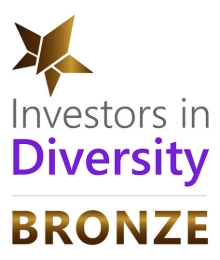Changes in Accreditation in the United States and Beyond: Implications for Recognition Around the World
Did you know that there is an ever-increasing number of internationally domiciled students (35,000 International students in Ireland in 2022/23) studying in Ireland? The US remains the most common country of origin for Internationally domiciled students at 14.5%. This is followed by India at 13.5%, and China at 11.3%. These figures surpass pre-pandemic levels with the Level 8 honours bachelor’s degrees being the most popular choice to study. With recent rises in interest, our understanding of credentials and accreditation especially in the USA is important for us as we support admission, access to further learning and of course opportunities for employment and promotions.
Mark Coney represented NARIC Ireland, International Mobility and Prior Learning Unit (IMPL) and co-presented one of the 40+ workshops at this year’s TAICEP (The Association for Credential Evaluation Professionals) conference: “Changes in Accreditation in the United States and Beyond: Implications for Recognition Around the World”, which was held in Quebec City, Canada between 28th – 31st October. Mark, along with co-presenters, Margit A. Schatzman (President of Educational Credential Evaluators, Inc. (ECE) and Paul Norris presented this 90-minute session
An open, interactive forum
The sub-themes below were explored in an open, interactive forum for presenters and audience members alike:
1. Accreditation in the United States and in the Global context.
2. Accreditation & Institutional Recognition in Ireland.
3. NARIC Ireland Interpretation of US Changes.
4. Impact of Global Accreditation on Individual Learners.
5. Accreditation as a barrier to entry around the world.
6. How Accreditation is seen in the context of International Recognition.
7. Recognition Conventions.
8. Accreditation models in Ireland, South Africa and Dubai.
9. QQI’s global GAIN initiative.
The session reflected on how accreditation agencies are listed and operate outside and within international boundaries, plus the types and variations that exist and possible pathways for credential evaluators to find out where these legitimate accreditation or quality assurance agencies are located such as ENQA or QAHE and specifically for the US, under the US Secretary of Education list of Nationally Recognised Accrediting Agencies for Post Secondary Institutions and Programs (DAPIP) which provides an online database containing substantive information on US accrediting agencies who are accountable to the U.S. Department of Education.
Credential evaluators
We also discussed how credential evaluators could achieve an acceptable level of the transfer of knowledge so that continuous duplication when researching qualifications could be reduced, which would benefit both application officers and credential evaluators alike who were working in the HEI’s and recognition bodies, not just in the US, but in Ireland and further afield too. Electronic transfer of qualifications data to institutions and/or credential evaluation agencies via various online portals is certainly occurring but there is also a need to communicate findings or know where to simply ask questions (i.e. Recognition ListServs) whenever no data is available for all types of foreign qualifications. Also, for credential evaluators assessing global online qualifications it was generally understood that students and graduates from whatever country who enrol with online educational providers need to manage their expectations themselves with regards to compliance and recognition of international qualifications and the laws of their country or another jurisdiction which may or may not govern or accredit these online universities or qualifications. Short briefings for students at end of secondary education may assist learners to understand the impacts of their choices whenever choosing and enrolling with a multitude of various online providers. Something to take note of.
Impacts of regional and global conventions currently in place such as the GRC, LRC, Addis (Africa), Arab States, Tokyo (Asia Pacific) and LAC (Latin America and the Caribbean) were also identified as being positive steps forward in the journey of automatic recognition both regionally and internationally with linkages for each hopefully taking place to help streamline and improve the increasing mobility of students and workers alike.
Networking opportunity
The opportunity to network with fellow credential evaluators/application specialists from a host of US and Canadian Universities such as the University of Arkansas, Saskatchewan, Sacramento, Florida International, Quebec, Oregon, Toronto, Central Missouri to name but a few plus the American Association of Collegiate Registrars and Admissions Officers and other credential evaluation companies such as Educational Perspectives; Scholaro; International Education Evaluations from the U.S., plus fellow ENIC-NARIC officers from Norway, France, Italy, Iceland, Finland and our neighbours in the UK ENIC was extremely invaluable. Everyone agreed that they were taking part in one journey together and that each of us shared the same values, types of experiences and challenges both nationally and internationally. Especially for those who live and work in the US accreditation and evaluation services as there was mutual agreement that the potential reversal of Joe Biden’s Legislation Bill, which would have given the Federal government more responsibility and oversight for all education in the US as opposed to State ownership, would be potentially reversed under the new stewardship of President Trump in January 2025. All will unfold as they say.
Finally, global recognition is served well through our strong ENIC NARIC network. Check it out here: ENIC-NARIC and you can discover more here about: NARIC Ireland.
Our service is here to support you!


